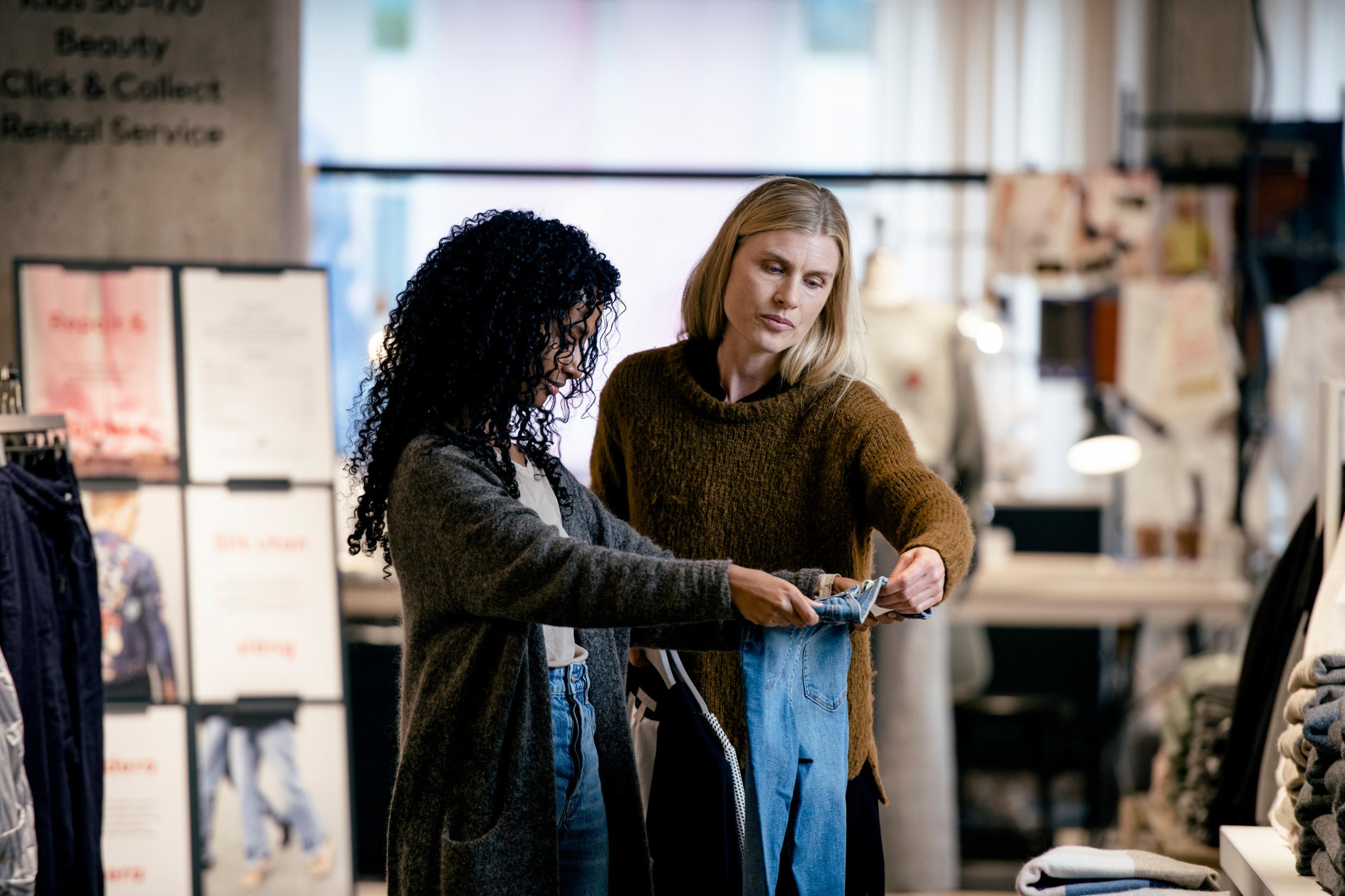How Swedish fashion embraces sustainability
The fashion industry is heading for circularity, and transformation is fast. Sweden is in it for the long term.
A long-term perspective
Swedish fashion aims to go from linear production to circular, where we don't discard materials after use but instead recycle or use them in other ways so that we keep waste to a minimum.
Traditionally, fashion has been defined by change and a desire for constantly new designs. Now, companies also work actively to make sure that their garments last longer, even though it might mean they make less money on their products in a short-term perspective. To speed up progress, many brands have started to collaborate to find solutions and share their knowledge.
Pioneering methods for global sustainable fashion
A national platform for sustainable fashion and textiles is creating forward momentum in Sweden. Textile & Fashion 2030 is a government-supported initiative led by the University of Borås in collaboration with organisations that include the Swedish School of Textiles, Smart Textiles, Science Park Borås (link in Swedish), Research Institute of Sweden (RISE) and others.
Textile & Fashion 2030 aims to test and study different techniques of sustainable fashion settings that are in close proximity to industry or consumers – or both. The purpose of the initiative is to figure out how lessons from small-scale sustainability advancements can be rolled out on the world stage.
Going circular
Filippa K is one of the sustainability pioneers in Swedish fashion. Since 2014, the brand has operated by the motto that ‘sustainability leads the way to growth’, with the lifespan of its garments as a primary focus. Among the brand's latest initiatives is a collection made from a wood-based material, OnceMore® – a collaboration with forest industry group Södra. By 2030 Filippa K aims to remake, resell or recycle 100 per cent of collected garments.
Houdini Sportswear has managed to turn more than half of its products circular – by prolonging the life of garments, as well as by offering repairs, rentals and second-hand sales. The brand has also conducted an experiment in which their clothing is composted into food soil.
Slow fashion
Ever heard of the Swedish saying 'There is no bad weather, only bad clothing'? A good starting point for a Swedish rainwear brand, right? Stutterheim is in the business of slow fashion, making durable, high-end raincoats with timeless design.
A long life also comes in the shape of wool. A New Sweden, founded in 2017, builds its brand around locally sourced materials and collaborates with farmers for its supply of wool. The company's clothes contain no plastics, and 100 per cent of its garments are biodegradable.
Repairing the old
Gothenburg-based Nudie Jeans is committed to a strict code of conduct. This means that the brand only works with a carefully selected group of suppliers, demanding that they continuously supply Nudie Jeans with reports, action plans and certifications. The company also repairs people's old Nudie jeans so they don’t have to buy new ones, which challenges the idea that fashion should always be defined in relation to what is new and in style.
Repamera (link in Swedish) is an online shop for tailoring services, where customers can have their clothes mended instead of buying new ones. You just post whatever needs mening and get it back within ten days.
Made to order
Technology has an important role to play in the green transformation of Swedish fashion. Atacac is a fashion-tech start-up based in Gothenburg that makes clothing digitally. Garments are made to order – that way, over-production is avoided. The company's vision is to reinvent fashion by combining new technology with art and traditional craftsmanship.
Fashion council
Since 1979, the Swedish Fashion Council works to strengthen, inspire and support the development of the Swedish fashion industry, to make it sustainable in all areas and position it internationally.
